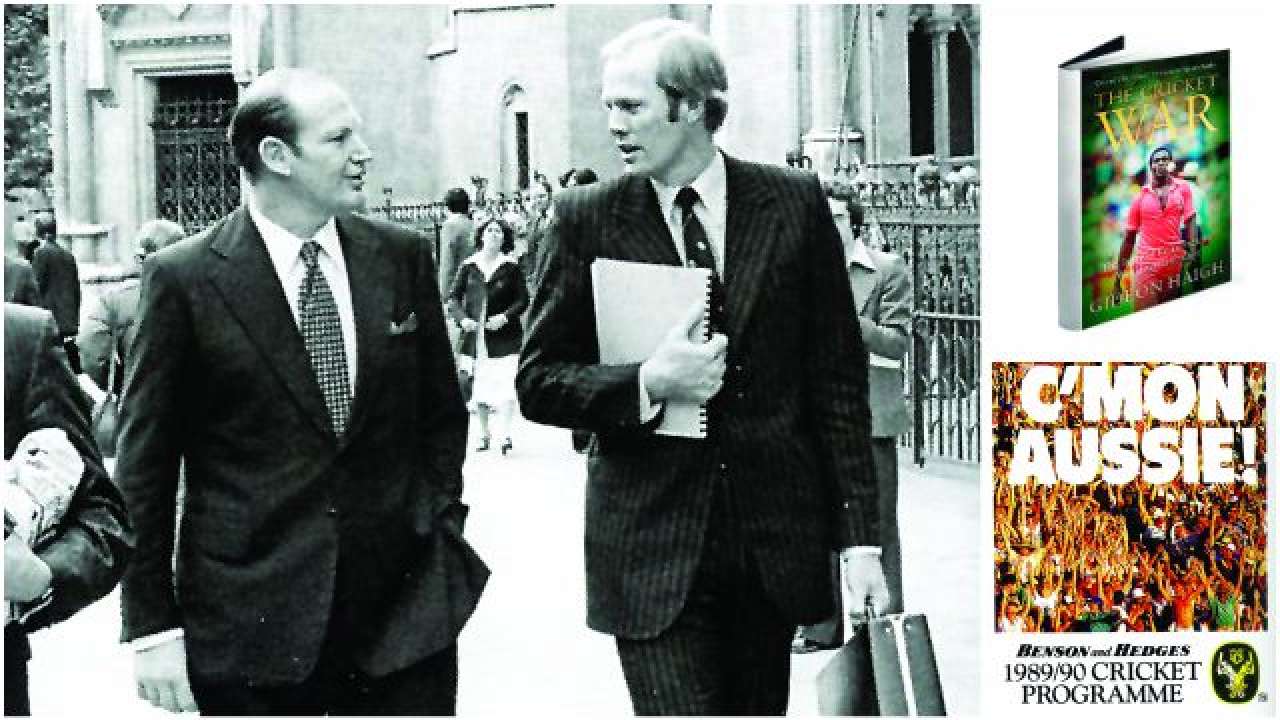
The Cricket War – The Story of Kerry Packer's World Series Cricket
Gideon Haigh
Bloomsbury/Wisden
368 pages
Rs 379
Day-night cricket matches; television broadcast of matches; the use of a white ball (as against the traditional red); players in multi-coloured clothing and helmets; mega-buck pay-cheques for cricketers — cricket followers today take these elements for granted.
Not many know that these are actually innovations in the traditional format of the game that have their roots in a landmark tournament that took place in Australia in the summer of 1977-78 — the World Series Cricket (WSC), a brainchild of Australian businessman Kerry Packer.
Packer roped in 35 of the best cricketers of the time from Australia, West Indies, England, Pakistan and South Africa (there were no players from India and New Zealand, and Sri Lanka, Bangladesh and Zimbabwe were yet to receive the Test status) to play a 'rebel' series, which not just shook up the cricketing world then, but its tremors can be felt even now. Packer roped in the players by paying large sums of money and also huge performance bonuses that made what they earned from their country's cricket boards look like peanuts.
In turn, he demanded good quality cricket and even chided players for not coming up with their best. Haigh quotes Kepler Wessels, then just 21 and yet to get a place in the South African test side, as saying: "I was overoptimistic because he (Packer) proceeded to tell me in no uncertain terms that he did not import players to score 40s and that I must get my arse moving".
Gideon Haigh, an award-winning, English-born-Australian journalist, minutely captures the story of Packer's breakaway series in The Cricket War. This is an updated version of his book first published 24 years ago and brought out to mark the 40th year of WSC — the first ball of the first WSC Supertest between Australia and West Indies was bowled on December 2, 1977.
Haigh packs in a lot of details — starting from the time the idea was first floated, the various characters involved, how the recruitments were made and the opposition from various national cricket boards and the world body governing cricket, International Cricket Conference (as the International Cricket Council was then known). He captures the mood brilliantly by reproducing conversations on and off the field between players and organisers — full of Australian slang and cuss words. The scorecards of the WSC Supertests, included at the end of the book, give a sneak preview into the quality of the WSC games.
There have been many books written on the subject including one by Australian journalist Peter McFarline who first broke the news of WSC, but Haigh does a thorough job of covering all the aspects, including the controversies — just the index, with references to many books and periodicals, runs to nearly five pages. It's a commendable feat, considering The Cricket War was only Haigh's second book — he has written 30 more at last count, besides editing many others.
Packer's WSC was a watershed in the history of the game — the Indian Premier League and all the other T20 leagues that dot the cricket calendar today, and the enormous sums that accrue to the sport from television rights can all be traced back to it. Read today, the words of Packer recruit and former Pakistan captain Asif Iqbal, spoken back in 1978, are almost prescient of the changes to come: "I would not be surprised if tomorrow, a keen youngster approached a top cricketer for the latter's autograph and got a quick reply: 'talk to my manager first'."
Will the current generation of cricket fans in India like the book? It's hard to say, but the book is certainly enlightening. Readers will, however, need patience to go through the copious details and the match descriptions which, at a time when you only have to click a button to get scores of the match may seem irrelevant.